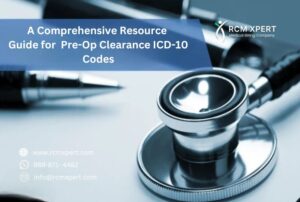Are you puzzled by the various medical billing systems out there? You’re not alone. The world of healthcare finance can be complex, but understanding the different types of medical billing systems is crucial for healthcare providers and administrators alike. In this guide, we’ll break down the most common types of medical billing systems, their pros and cons, and how to choose the right one for your practice.
What are medical billing systems?
Before we dive into the different types, let’s clarify what we mean by medical billing systems. These are software tools and processes used by healthcare providers to submit and follow up on claims with health insurance companies. They’re essential for getting paid for the services you provide.
Why are medical billing systems important?
Medical billing systems play a vital role in the healthcare industry. They:
- Streamline the billing process
- Reduce errors and claim denials
- Improve cash flow for healthcare providers
- Ensure compliance with healthcare regulations
- Enhance patient satisfaction by providing clear billing information
Now that we’ve covered the basics, let’s explore the main types of medical billing systems you’ll encounter.
1. In-house medical billing systems
What is in-house medical billing?
In-house medical billing refers to the practice of managing all billing processes within your healthcare organization. This means you have a dedicated team of billing specialists who handle everything from claim submission to follow-ups.
Pros of in-house medical billing
- Complete control over the billing process
- Direct access to billing staff for quick issue resolution
- Potentially lower long-term costs for large practices
Cons of in-house medical billing
- Higher upfront costs for software and staff training
- Requires ongoing management and oversight
- May be less efficient for smaller practices
2. Outsourced medical billing services
What are outsourced medical billing services?
Outsourced medical billing involves contracting with a third-party company to handle your billing processes. These specialized firms have the expertise and resources to manage billing efficiently.
Pros of outsourced medical billing
- Access to experienced billing professionals
- Reduced overhead costs for staffing and training
- Potentially higher collection rates due to specialized expertise
Cons of outsourced medical billing
- Less direct control over the billing process
- Potential communication challenges with the billing company
- Concerns about data security and patient privacy
3. Cloud-based medical billing software
What is cloud-based medical billing software?
Cloud-based medical billing systems are software solutions hosted on remote servers and accessed via the Internet. They offer flexibility and accessibility from anywhere with an internet connection.
Pros of cloud-based medical billing software
- Lower upfront costs compared to on-premises solutions
- Automatic updates and maintenance are handled by the provider
- Easy access from multiple devices and locations
Cons of cloud-based medical billing software
- Requires a stable internet connection
- Potential security concerns with data stored off-site
- Monthly subscription fees can add up over time
4. On-premises medical billing software
What is on-premises medical billing software?
On-premises medical billing software is installed and run on computers within your healthcare facility. It offers complete control over your data and systems but requires more hands-on management.
Pros of on-premises medical billing software
- Full control over data and software customization
- No reliance on internet connectivity for core functions
- Potentially lower long-term costs for large practices
Cons of on-premises medical billing software
- Higher upfront costs for hardware and software licenses
- Requires in-house IT support for maintenance and updates
- Limited accessibility from outside the office
5. Integrated EHR and medical billing systems
What are integrated EHR and medical billing systems?
These systems combine electronic health records (EHR) with billing functionality, offering a seamless workflow from patient care to claim submission.
Pros of integrated EHR and medical billing systems
- Streamlined workflow between clinical and billing processes
- Reduced data entry errors through automation
- Comprehensive reporting capabilities
Cons of integrated EHR and medical billing systems
- Can be more expensive than standalone systems
- May require extensive staff training to use it effectively
- Potential for system-wide issues affecting both EHR and billing
6. Specialty-specific medical billing systems
What are specialty-specific medical billing systems?
These are billing systems tailored to the unique needs of specific medical specialties, such as radiology, dentistry, or mental health.
Pros of specialty-specific medical billing systems
- Customized features for specific medical specialties
- Often include specialty-specific coding and compliance tools
- May integrate with specialty-specific EHR systems
Cons of specialty-specific medical billing systems
- May be more expensive than general-purpose systems
- Limited flexibility if your practice expands to other specialties
- A smaller user base may mean fewer updates and improvements
How to choose the right medical billing system for your practice
Selecting the best medical billing system for your healthcare organization depends on several factors:
- Practice size: Larger practices may benefit from in-house or on-premises solutions, while smaller ones might prefer cloud-based or outsourced options.
- Budget: Consider both upfront costs and long-term expenses when evaluating different systems.
- Specialty needs: If you have unique billing requirements, a specialty-specific system might be worth considering.
- Technical expertise: Assess your team’s ability to manage and maintain different types of systems.
- Growth plans: Choose a system that can scale with your practice as it grows.
- Integration needs: If you already use an EHR system, look for billing solutions that can integrate seamlessly.
- Compliance requirements: Ensure the system you choose supports current healthcare regulations and can adapt to future changes.
Key features to look for in medical billing systems
Regardless of the type of system you choose, here are some essential features to consider:
- Claim scrubbing and error-checking
- Electronic claim submission
- Payment posting and reconciliation
- Patient billing and statements
- Reporting and analytics
- Customizable workflows
- Integration with other healthcare software
- Mobile Accessibility
- HIPAA compliance and data security
The future of medical billing systems
As technology continues to evolve, we can expect to see some exciting developments in medical billing systems:
- Increased use of artificial intelligence for claim processing and denial management
- Enhanced patient portals for better communication and self-service options
- Greater integration with telemedicine platforms
- Improved data analytics for revenue cycle management
- Blockchain technology for secure and transparent transactions
Wrapping up: Making the right choice for your practice
Choosing the right medical billing system is a critical decision that can significantly impact your healthcare organization’s financial health. By understanding the different types of systems available and carefully evaluating your practice’s needs, you can select a solution that streamlines your billing processes, improves cash flow, and allows you to focus on what matters most – providing excellent patient care.
Remember, the best medical billing system is one that fits seamlessly into your workflow, meets your specific needs, and helps you navigate the complex world of healthcare finance with confidence. Take the time to research your options, consult with experts, and even try out demos before making your final decision. With the right medical billing system in place, you’ll be well-equipped to tackle the challenges of modern healthcare finance and keep your practice thriving.





